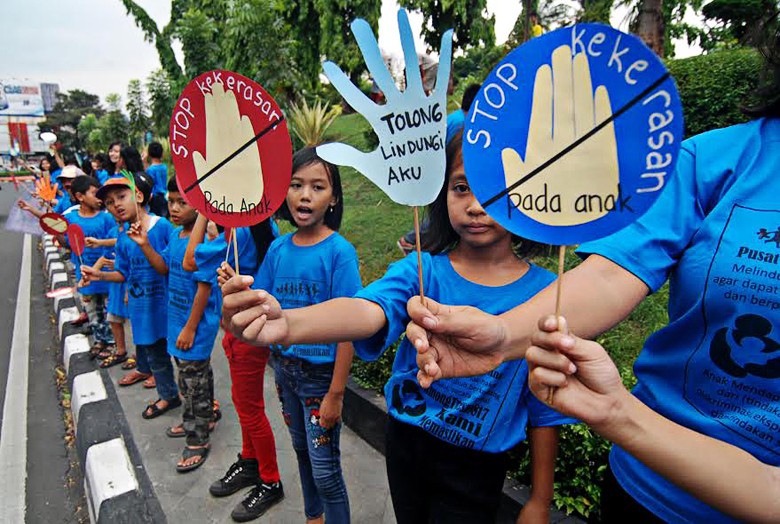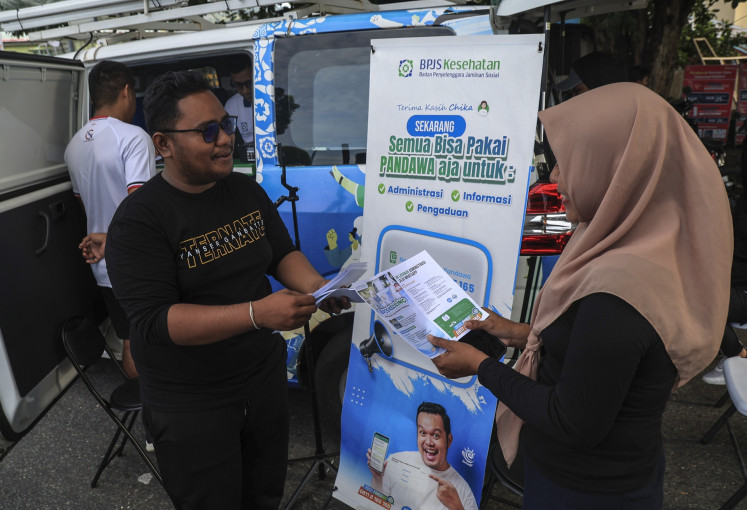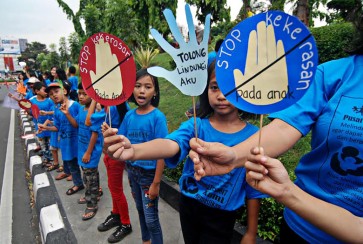Popular Reads
Top Results
Can't find what you're looking for?
View all search resultsPopular Reads
Top Results
Can't find what you're looking for?
View all search resultsNew resolution: Time to eliminate violence against children
The designation of being a child-friendly region is a status that is earned through the continuous efforts of the local administration in changing the behavior and mindset of the adults around children, and not just about providing physical facilities.
Change text size
Gift Premium Articles
to Anyone
W
e have learned in the last 20 months or so that the government still needs to do more to provide safe spaces for our children. Domestic violence has increased as a result of various restrictions on activities outside the home.
While the government is trying to protect its citizens from the coronavirus when meeting people outside their homes, our children are being exposed to violence through online media, the very tool that should be helping them to learn. Not to mention, parents are experiencing higher stress levels as a result of the changes and uncertainties the pandemic has generated.
So where should our children seek safety if they fall victim to abuse and violence at home?
Many regulations on child protection have been developed and implemented. They have been enacted at the national and provincial levels down to the village level. Many regions also claim to be child-friendly simply because they have met the checklist, which only covers physical facilities.
Many forget that being child-friendly entails more than just providing children with a playground to play in and books to read. Being child-friendly requires continuous efforts in changing the behavior of the adults around them so they are empowered to make their home a safe place for their children to live and grow.
In 2020, Wahana Visi Indonesia (WVI) conducted a child-led research study in several areas across the country, including the regencies of East Sumba, Sikka and Ende in East Nusa Tenggara, the Bengkayang and Sambas regencies in West Kalimantan, as well as the municipalities of North Jakarta and East Jakarta in the nation’s capital.
The children participating in the study worked on a variety of issues, including parental psychological abuse, school dropouts, child marriage, child labor and the impacts of COVID-19 on children. Before going out into the field, the children were taught about child protection, research methods, report writing, advocacy and topics related to social change.



















